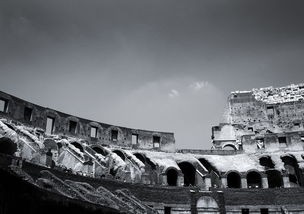(先驱的英文单词)Title: The Pioneers: A Comprehensive Analysis
In the annals of history, pioneers have played a pivotal role in shaping the world we live in today. The term "pioneers" refers to individuals or groups who blaze new trails, challenge the status quo, and bring about significant changes in various fields. This article delves into the concept of pioneers, examining their contributions, challenges, and the impact they have on society. We will explore the topic through multiple lenses, answer some frequently asked questions, and provide relevant references.
The Concept of Pioneers
Pioneers are those who dare to venture into uncharted territories, whether in science, technology, art, or social movements. They often face skepticism, resistance, and numerous obstacles. However, their perseverance and innovative spirit have led to groundbreaking advancements that have transformed our world.
Historical Pioneers
1、Scientific Pioneers: Figures like Isaac Newton, Charles Darwin, and Marie Curie revolutionized the way we understand the universe, biology, and the atom. Their discoveries laid the foundation for modern science.
2、Technological Pioneers: visionaries like Thomas Edison, Nikola Tesla, and Steve Jobs have changed the way we live, work, and communicate through their inventions and innovations.
3、Social Pioneers: Activists like Martin Luther King Jr., Mahatma Gandhi, and Malala Yousafzai have fought for social justice, equality, and education, inspiring generations to stand up for what is right.
Analysis of Pioneers
1. The Role of Risk-Taking
Pioneers are inherently risk-takers. They challenge conventional wisdom and often face significant risks. This risk-taking is essential for progress, as it pushes the boundaries of what is possible. However, it also raises questions about the ethical implications of their actions.

2. The Impact on Society
Pioneers have a profound impact on society. Their innovations can lead to economic growth, improved quality of life, and social change. For instance, the internet has revolutionized communication, making the world more interconnected than ever before.
3. The Challenges Faced
Pioneers often encounter resistance from established institutions, skepticism from peers, and financial constraints. They must be resilient and persistent to overcome these challenges.
Frequently Asked Questions (FAQ)
Q1: What qualities define a pioneer?
A1: Pioneers are characterized by their vision, determination, resilience, and willingness to take risks. They are often creative thinkers and problem solvers.

Q2: Can pioneers be considered heroes?
A2: While pioneers are not always heroes in the traditional sense, their contributions to society can be seen as heroic, as they often sacrifice personal comfort for the greater good.
Q3: How can we encourage more people to become pioneers?
A3: Encouraging a culture of innovation, providing access to education and resources, and fostering a supportive environment can inspire more individuals to become pioneers.
Q4: What are the potential drawbacks of being a pioneer?
A4: Pioneers may face social isolation, financial strain, and emotional stress. Their ideas may also be misunderstood or rejected by the mainstream.
Conclusion

Pioneers are the architects of change, pushing the boundaries of human potential and transforming our world. While their journey is often fraught with challenges, their contributions are invaluable. As we look to the future, it is essential to continue supporting and celebrating the pioneers who will shape our tomorrow.
References
1、ISBN: 978-0-19-960671-3, "Pioneers: The Revolutionaries Who Shaped Our World," by Walter Isaacson.
2、ISBN: 978-0-14-027795-7, "The Innovators: How a Group of Hackers, Geniuses, and Geeks Created the Digital Revolution," by Walter Isaacson.
3、ISBN: 978-0-393-34836-5, "The Pioneers: The Heroic Story of the Settlers Who Brought the American Ideal West," by David McCullough.







